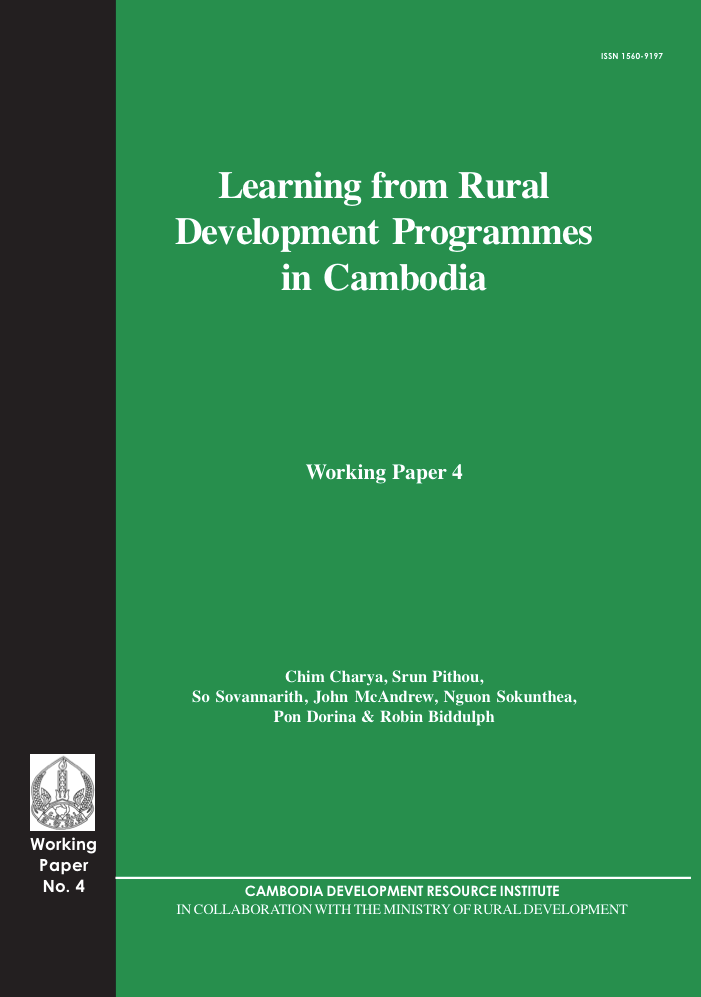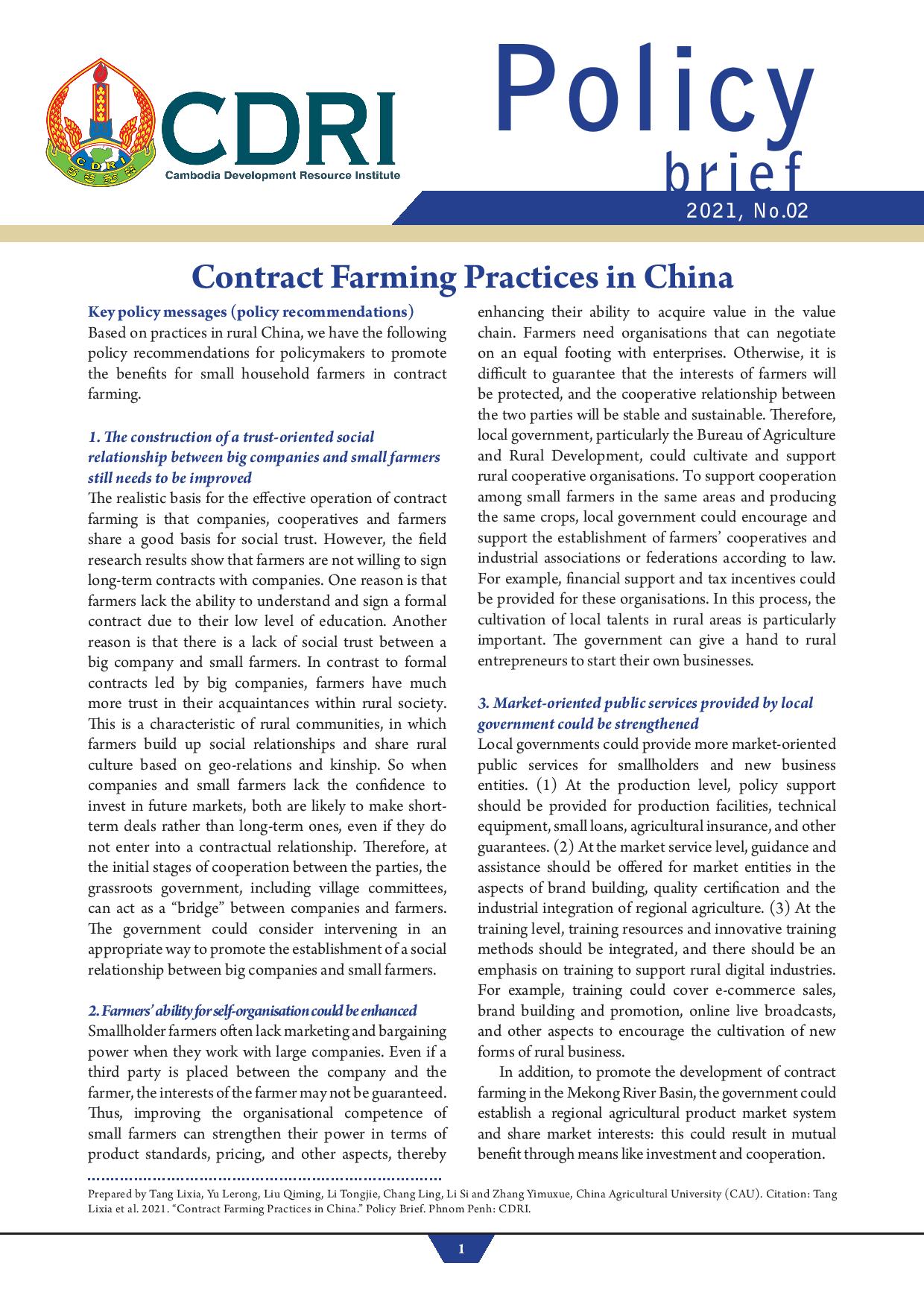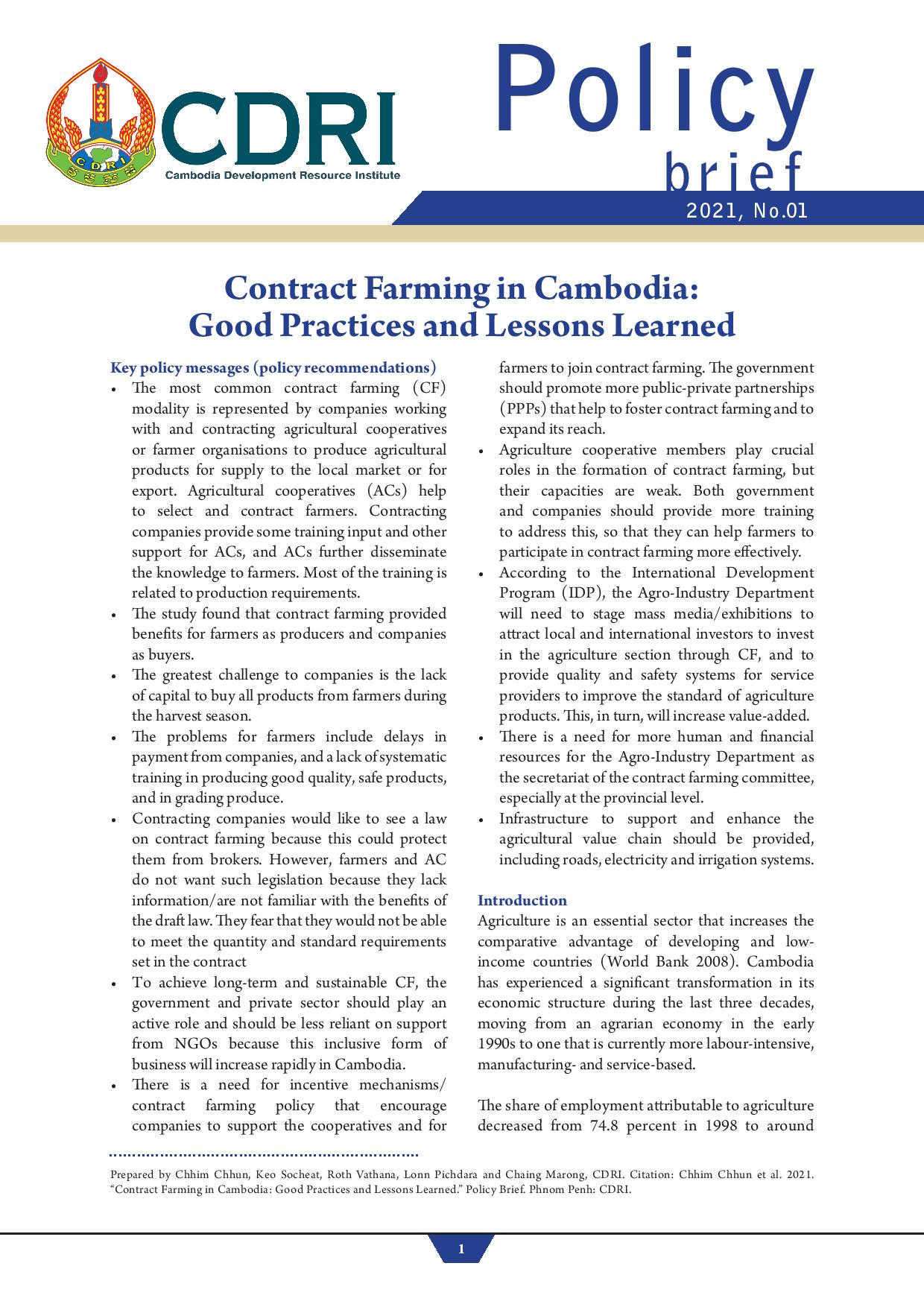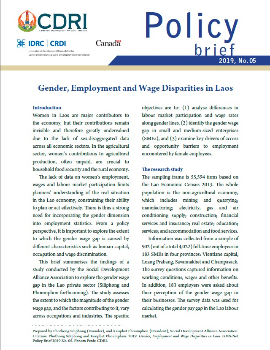
Learning from Rural Development Programmes in Cambodia
Keyword: Rural development, community participation, village development committees, infrastructure and credit schemes, sustainability and policy coordination
Abstract/Summary
This working paper presents a comparative analysis of six rural development programmes in Cambodia, jointly studied by the Ministry of Rural Development and the Cambodia Development Resource Institute. The study explores how benefits are distributed, the extent of community ownership, sustainability of interventions, and the influence of organisational structures on implementation. Findings highlight that infrastructure projects—particularly irrigation canals and roads—have had the most immediate economic impact, while wells, schools, and health centres offer long-term social benefits. However, credit schemes and agricultural extension efforts often lacked coherence and failed to meet the needs of the poorest. Village Development Committees (VDCs) have played a central role in facilitating participation, though their effectiveness varies depending on village structure and support. Sustainability is challenged by limited government funding and overreliance on external aid. The study underscores the importance of local planning processes, community ownership, and the need for development organisations to balance output- and process-oriented approaches. It concludes that rural development in Cambodia requires greater coordination, innovation, and a willingness among organisations to learn from each other’s experiences to effectively address poverty and promote sustainable development.



